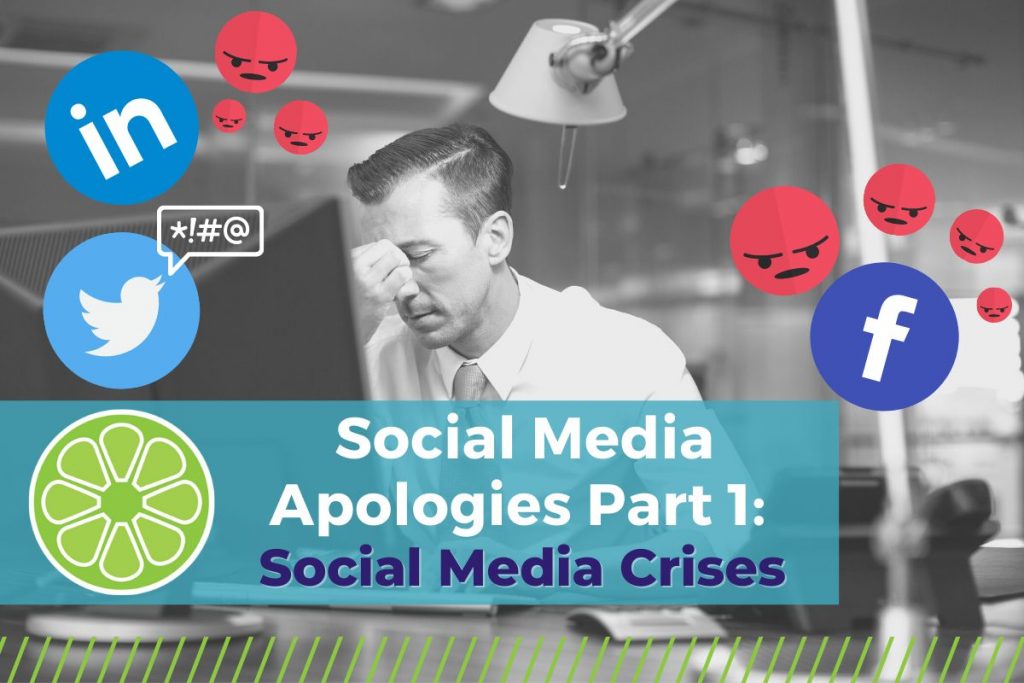If you’re active online, you’ve likely read your share of social media apologies. Platforms today offer more visibility to brands and influencers than ever. Like it or not, if you are active on social media, your followers have 24/7 access to you. This can be awesome for building communities and strengthening brand-to-consumer relationships, but it also means any slip-ups or major mistakes are on display for all to see.
We’re going to focus today on how established brands should apologize during a social media crisis. A social media crisis overwhelms brand channels and is defined as “any social media activity that potentially hurts your brand’s reputation or ability to do business” (Sprout Social). A crisis can result from actions a brand takes both on and offline.
Prepare yourself to prevent permanent brand reputation damage with these social media apology dos and don’ts from Sublime Media Group.
Do: Engage in social listening
Social listening is the act of monitoring any mentions and discussions of your brand on social media. This includes comments, public posts, and private messages. While social listening is an awesome tool for audience research, it becomes vital when your brand is facing criticism. Social listening can help you gauge how prevalent an issue is becoming, capture misinformation, and determine if and when you need to apologize.
Don’t: post your regular content.
During a social media crisis, you need to shift your focus from promoting your brand to protecting your brand. If a complaint against your company is threatening your reputation online, you face a skeptical audience with each new message. You’re more likely to encounter backlash if you ignore the issue at hand and post normally. Refrain from posting your brand’s normal content until you have issued an apology.
Do: apologize with a public post.
Your company’s action may have affected only a small group of individuals, but it’s best to apologize to everyone when that action results in heated public discussion. Recently, Jeopardy! faced backlash on Twitter for airing an offensive clue about a blood circulation disorder (USA Today).
Dysautonomia International, a major non-profit in the sphere, called on the game show to apologize:
In response, Jeopardy! promptly issued an apology from their verified Twitter account:
Dysautonomia International accepted Jeopardy!‘s apology publicly- the best-case scenario for Jeopardy!’s brand reputation.
By choosing to apologize to their full Twitter audience, Jeopardy! ensured that everyone could easily find the message. Making a public apology post from a brand account does make you vulnerable to a larger audience, but it removes public speculation about your integrity.
Don’t: Wait.
You might be tempted not to post about an issue on social media to avoid making the situation worse. However, avoiding the apology enables misinformation to spread and anger to build. Although each social media crisis differs in severity, your top priority should be to maintain control of the narrative. If you can’t apologize yet due to a lack of information or approval, let your audience know that you are investigating the crisis. Leaving your audience scrambling with no information is not the way to go.
There is no perfect, step-by-step way to issue an apology on behalf of your brand. Each social media crisis presents new challenges that require careful attention. Analyze the situation carefully, and don’t hesitate to consult an expert in crisis communication if the dialogue spins out of control. It takes years to build credibility and one viral post to topple it.
Contact us to learn about how you can leverage social media to promote your brand, and how social media management can help you protect it.

